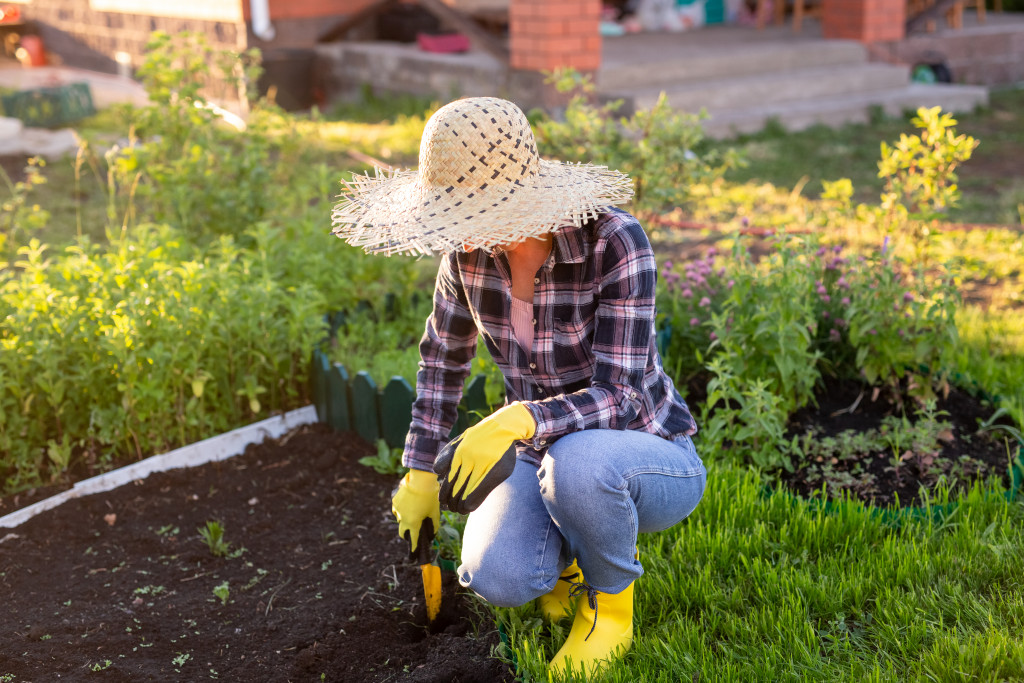A beautiful garden is a perfect place to relax and enjoy the outdoors. But keeping your garden looking its best can be a lot of work. This guide will show you how to take care of your garden so that it will stay healthy and vibrant all season long. With a little effort, you can have a gorgeous garden that will be the envy of your neighbors.
Watering Your Garden
One of the most important things you can do for your garden is to water it regularly. Depending on your plant type, you may need to water every day or just a few times a week. Be sure to check the soil before watering to make sure that it is dry. Overwatering can be just as damaging as not watering enough.
You can also install an irrigation system that will help you water your garden automatically. Not only will this save you time, but it will also ensure that your plants get the water they need even when you’re away from home.
Fertilizing Your Garden
Another important step in taking care of your garden is to fertilize it regularly. This will assist in ensuring that your plants receive the nutrients they require to develop strong and healthy. There are many types of fertilizer available, so choose one that suits your plants.
You should also add compost to your garden. This will provide essential nutrients for your plants and help improve the quality of your soil. To make your own compost, simply add organic matter such as leaves, grass clippings, and vegetable scraps to a bin. Over time, this will break down into a rich compost that is perfect for your garden.
Weeding Your Garden
Weeds can quickly take over your garden if you’re not careful. Pulling them by hand is the best way to get rid of them, but you can also use a weed whacker or herbicide. Here are a few tips to help you keep your garden weed-free:
- Pull weeds when they are young. The older they get, the harder they are to remove.
- Use a hoe or other tool to loosen the soil before you pull the weed. This will make it easier to get the entire root.
- Try to pull weeds before they have a chance to flower and spread their seeds.

Pest Control in Your Garden
Garden pests can wreak havoc on your plants, so it is important to control them as much as possible. The best way to do this is to IDPests identify the pests in your garden and then choose a method of control that is appropriate for those pests. Some common garden pests include aphids, caterpillars, and slugs.
You may also want to consult with a local nursery or extension office for more information on pest control in your area. For example, they may be able to recommend a type of bait that is specific to the pests in your region. No matter what type of pest you’re dealing with, many effective control methods are available.
Dealing with Diseases in Your Garden
Plant diseases can be just as damaging as pests. If you notice that your plants are wilting, discolored, or otherwise not looking healthy, they may have a disease. The best way to deal with diseases is to prevent them in the first place by choosing disease-resistant plants.
If you do find that your plants have a disease, you should take action immediately. Depending on the type of disease, you may be able to treat it with a fungicide or other type of pesticide. You can also often save diseased plants by cutting away the affected parts.
Harvesting Your Garden
No matter what type of plants you have, eventually, you will want to harvest them. This is the process of collecting your fruits, vegetables, herbs, and other plants for use. Timing is important when harvesting, as you want to make sure that your plants are ripe but not overripe.
For example, tomatoes should be red and slightly soft to the touch before you harvest them. They will not be as flavorful if they are still green or hard. Once you have harvested your plants, you can use them fresh or preserve them for later use.
Taking care of your garden is important if you want it to thrive. By following these simple tips, you can ensure that your plants are healthy and happy. So get out there and get started on your ultimate guide to taking care of your garden!

